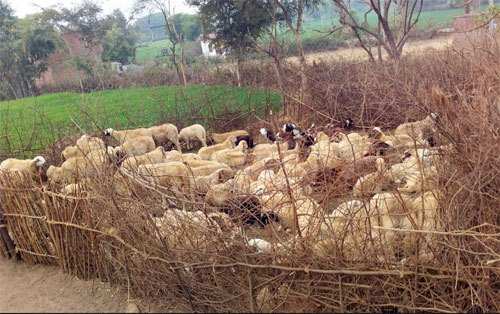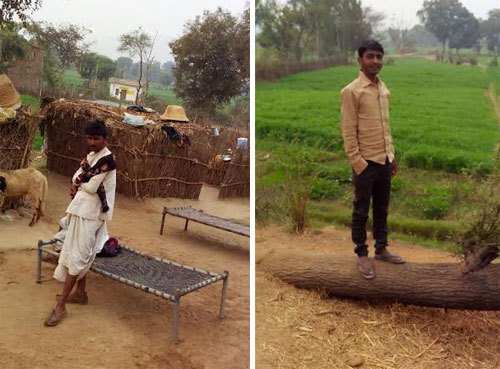The Nomadic Bond: Fostering Relationships
There is a lot that we can learn from the unlettered. The so called uncivilized masses have much to offer to the civilized world. In a time when urban elite are creating shelter homes for their own parents and sending them off to Old -age care centers so that they can live freely with their nuclear families, there is a community which fosters the children of nomadic tribes traveling to their village during the summers, and leaving their children behind with them.

Dr.H.S.Chandalia & Nand Lal Gayari
There is a lot that we can learn from the unlettered. The so called uncivilized masses have much to offer to the civilized world. In a time when urban elite are creating shelter homes for their own parents and sending them off to Old -age care centers so that they can live freely with their nuclear families, there is a community which fosters the children of nomadic tribes traveling to their village during the summers, and leaving their children behind with them.
The Rebari, Rayka and Devasi communities of western Rajasthan have traditionally been nomadic tribes. They fall under the category of OBC (Other Backward Castes) . Though many of them have taken to permanent settlements, there are still many families who rear cattle and move out to regions where they can get fodder for their herds. Every year Rebari families with their herd of camels, sheep and goats travel to south Rajasthan and move on to Malwa region of Madhya Pradesh and Sabarkantha and Banaskantha districts of Gujarat. There is a village in Jhadol Tehsil named Khakhad, some sixty five kilometers from Udaipur in South Rajasthan. The Rebari families along with their cattle including camels, goats and sheep travel to this village in winters every year where they stay for some time. The cattle rest in the fields of the local farmers and it is believed that their excreta left in the fields gets converted in manure and adds to the fertility of the soil. So the local peasants pay them some money or some amount of grain for the stay of the herd. This practice of making the herd stay in the fields is called “Raat Khatrana” in local dialect.

Since these families are always on the move every year, it becomes difficult for them to educate their children. The children cannot be admitted to a school if they are required to move with their parents. To solve this problem the Gayari community families, who also have a similar occupation but stay at one place with their herds of sheep, goat , cows and buffalos, out of love and friendship, request the nomadic families to leave their children with them. They stay in their homes and study in schools of the Khakhad village. The Gayari people treat the children of the Rebari families as their own and fulfill all their needs. At present a boy named Bhima son of Karmaji, a Rebari is staying with the family of Mahendra Gayari of the village Khakhad.Earlier Mohan Lal Rebari, Jodha Rebari and some more children lived in the village and left after completing education up to secondary.
Contrarily there are stories of conflicts between the nomadic communities and the local peasantry in Malwa region for the grazing rights. The locals charge the nomadic communities for destroying the crops, plants and trees and also the pasture lands. Often these conflicts turn violent also. In Khakhad village also earlier there used to be some hostility with Rebaris because they used to pay more to buy the fodder which is called “Paala” in the rural dialect. But nowadays there is no rivalry or hostility between the local and migrant communities. Khakhad village and its Gayari community have set an example of humanity and love which can be a lesson to the ever conflicting society we see in big cities and towns.
To join us on Facebook Click Here and Subscribe to UdaipurTimes Broadcast channels on GoogleNews | Telegram | Signal


